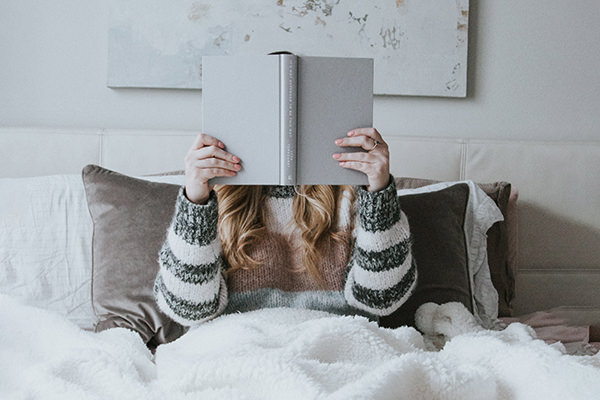Seven Scientific Advantages Of Printed Books

Print books have experienced a renaissance in recent years, and for a good reason: evidence suggests that they are healthier for your brain and health. Here are a few of the reasons for this:
You can retain more information
According to a study published in Italy in 2014, readers of print books absorb and recall more of the plot than readers of e-books. In a previous study, print readers also scored higher in other categories, including empathy, absorption in the book, and narrative understanding. According to scientists, this effect is thought to be related to the physical sense of having a book in your hands.
In other words, the waxing and waning pages on either side of the book can help readers feel like they’re unfolding the story both literally and figuratively by allowing them to see and feel how far along you’ve gotten in the plot. Plus, with a print book, you can double-check facts without losing your position and having to scroll or click back on your smartphone or tablet.
They also assist children in becoming better readers
Another study of young children aged three to five found that when their parents read to them from an e-book rather than a paper book, they had less comprehension of the text. According to researchers, this occurs because children are distracted by the technological device and have difficulty focusing on the story. According to another study, students who read a short tale on an e-reader were less engaged and had a more challenging time remembering the exact order of events.
They’re less straining on the eyes
Given that many jobs require you to look at a computer screen for long periods, it’s good to rest your eyes whenever possible. According to a survey, nearly half of 429 university students said they had sore eyes after reading digitally. Screen tiredness can result in blurred vision, redness, dryness, and irritation when reading electronic books. You don’t have to worry about any of that with print books.
You’ll be less prone to being sidetracked
People who read e-books are more likely to get sidetracked, but it’s not only because the internet is right at their fingertips. Instead of genuinely comprehending what they’re reading, digital users spend more time scanning for keywords. There’s also no risk of being distracted by links or falling down an internet rabbit hole hunting up the collective phrase for a group of ferrets when reading a physical book.
According to one survey, 67 percent of university students could multitask while reading digitally versus 41% of print readers; however, this isn’t always a good thing if your goal is to study and understand the content before you thoroughly.
They can assist you in getting a better night’s sleep
Reading from a screen or browsing through a social networking app on your phone while winding down for the night are awful ideas. Blue light from your shield has been shown in research after study to mess with your melatonin levels and circadian cycles, making it harder to fall asleep and making you feel groggy when you wake up. On the other hand, reading can help you fall asleep when you’re having difficulties sleeping due to the engagement and brain activity it provides. Stick with print if you want to obtain a good night’s sleep.
Having a home library has been related to improved academic performance
According to a study of readers from 42 nations, students who have books at home are more likely to achieve higher exam scores. This is true for children from low-income households. Researchers believe this because having novels at home encourages youngsters to read for pleasure and discuss what they’ve learned with their parents, which can only help them in school.
They enhance the pleasure of reading
According to a recent study of college students from the United States, Slovakia, Japan, and Germany, 92 percent of respondents preferred physical books they could handle, touch, and leaf through. Print materials are chosen by students for various reasons, including fewer interruptions and reduced eye strain, while other answers revolved around how books made them feel.
Students from Slovakia, in particular, have expressed a fondness for the fragrance of books. Indeed, scientists studying the chemical structure of antique books discovered hints of vanilla (from lignin, a similar-smelling component in paper) and grassy notes on the pages.
In this way, inhaling the scent of an old book is similar to inhaling the smell of perfume or flowers. According to studies, readers have also been proved to make us happier, inspire us to travel, and encourage us to make life-changing decisions. So don’t feel bad if you go a little overboard at the bookshop the following time: science suggests it’s beneficial for you.




